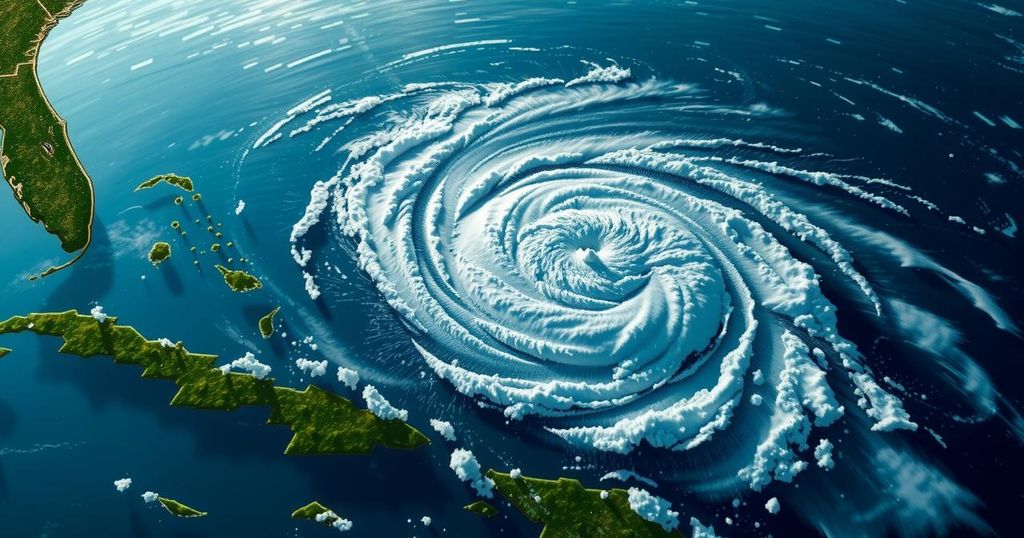A tropical storm named Hurricane Sara is intensifying off the US coast, expected to make landfall as a major hurricane this weekend. Favorable atmospheric conditions and warm ocean temperatures contribute to its rapid development, prompting alerts for residents in affected areas. Meteorologists emphasize the need for preparedness as the storm potentially threatens Florida and other southeastern states.
A tropical storm developing off the United States coast is rapidly intensifying, posing a significant threat of making landfall this weekend as a potentially major hurricane, designated Hurricane Sara. Following the aftermath of previous storms Helene and Milton, Florida and its neighboring regions remain on high alert. Meteorologists attribute the storm’s potential rapid escalation to the exceptionally warm ocean temperatures and favorable atmospheric conditions, which serve as a catalyst for hurricane development. The National Hurricane Center has issued warnings regarding the increased likelihood of hurricane formation as conditions remain prime for such occurrences. Meteorologist Alex DaSilva stated, “We’ll likely be dealing with a hurricane as we head into this weekend,” and emphasized that, “the atmosphere is primed for development.” The tropical storm is projected to intensify significantly due to a combination of record ocean heat content and low wind shear, both contributing to hurricane formation. Families and businesses along the eastern and southeastern coast of the United States are urged to take precautionary measures in preparation for potential severe weather. The storm is currently identified as a depression, known as ‘Invest 99L’, marking it as the eighteenth of the storm season. It is anticipated that Sara will follow a path similar to its predecessors, Helene and Milton, emerging from the Caribbean Sea. Computer models predict that it may quickly transition to Tropical Storm Sara and eventually strengthen into a hurricane as it approaches the western Caribbean Sea later this week. The ongoing hurricane season has been notably active, and various meteorologists have indicated that the warm waters will enhance the storm’s intensity further. Jon Porter, another meteorologist from AccuWeather, commented, “These warm waters will act like high-octane rocket fuel for this brewing storm,” highlighting the unusual warmth and the current climatic conditions conducive to storm development. It is critical for those residing in vulnerable areas to remain vigilant and prepared for the potential impacts of this storm.
Hurricane Sara emerges during a tumultuous hurricane season characterized by heightened storm activity. The Caribbean has shown increased ocean temperature levels, affecting storm intensity and the likelihood of rapid hurricane development. The current climatic conditions, including low wind shear and warm ocean waters, have resulted in alarm bells ringing for many eastern and southeastern coastal residents. Understanding hurricane formation can help communities adequately prepare as they face potentially severe weather systems, particularly in November, which is typically considered the tail end of the hurricane season.
In conclusion, Hurricane Sara, developing rapidly in the Caribbean, is projected to make landfall as a major hurricane this weekend, primarily affecting Florida and nearby regions still recovering from previous storms. The meteorological conditions are favorable for this storm’s intensification, urging residents to prepare for potential impacts. As experts continue to monitor this evolving situation, proactive measures are essential to mitigate risks associated with such severe weather phenomena.
Original Source: www.gbnews.com






